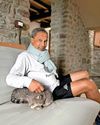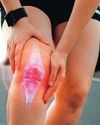
During his days at IIT Bombay, Mudit Dandwate designed and built race cars with relentless passion. So it was a natural career choice for him to take up the job of vehicle dynamics expert at Altair Technologies, where he pushed the limits even further. Mudit designed and built four full-scale race cars, including India's first electric race car. But on February 1,2015, his 24th birthday, as he sat alone at Frankfurt airport, Mudit found himself at a crossroads.
Reflecting on his life, he gave himself high marks for innovation, excitement and achievement. Yet when it came to making a real impact on the lives of others, he felt a glaring emptiness. Mudit gave himself six years to change that.
Within two months, he began discussing his ideas for meaningful innovation with his colleague, Gaurav Parchani, who was part of the multi-physics team at Altair. Soon, they became housemates, turning their late-night conversations into intense brainstorming sessions. One evening, after watching an animated superhero film, a spark of inspiration struck: what if they could create an Al-powered device that silently monitors health parameters and sends an alert when something is wrong?
Personal tragedy also played a key role in shaping the idea behind what would eventually become Dozee. "My uncle suffered a mishap in a hospital, and it got me thinking: 'Why aren't patient beds monitored like we monitor every component of a car?" Mudit recalled while speaking with THE WEEK. "In cars, we take pre-emptive action to prevent accidents or damage. Why not apply the same principle to human health?"
This story is from the November 03, 2024 edition of THE WEEK India.
Start your 7-day Magzter GOLD free trial to access thousands of curated premium stories, and 9,000+ magazines and newspapers.
Already a subscriber ? Sign In
This story is from the November 03, 2024 edition of THE WEEK India.
Start your 7-day Magzter GOLD free trial to access thousands of curated premium stories, and 9,000+ magazines and newspapers.
Already a subscriber? Sign In

Walking in pine forest can have the same effect as a prescription drug
INTERVIEW - KATHY WILLIS, professor of biodiversity, the University of Oxford, and author, Good Nature

MORE THAN A HELPING HAND
Maria Victoria Juan spent a lifetime healing wounded soldiers, and she can't think of anything she could have done better

Against all odds
Mohamed Raishan Ahmed was born with spinal muscular atrophy, which made him unable to sit, stand or walk. Recently, the Maldivian underwent a rare, complex surgery in India that now allows him to sit upright. At 23, the fact that he is alive is in itself an achievement. But he has gone beyond mere survival-with a pursuit of excellence

A pacemaker tale
From science fiction to reality, with a touch of southern Indian wisdom

Driving safe
Taxi drivers endure gruelling hours, cramped seats and relentless traffic, making them prime candidates for health issues like back pain, hypertension, diabetes and insomnia.

Good food, good life
From the moment of birth, we establish a relationship with food—a nourishing link that requires care and attention to stay healthy

POOR SLEEP IN MIDLIFE COULD AGE YOUR BRAIN FASTER
PEOPLE WHO EXPERIENCE SLEEP ISSUES, such as difficulty falling asleep or staying asleep in their 40s, may show more signs of brain ageing in late midlife. Poor sleep may accelerate brain atrophy that is associated with dementia.

BRAIN SCANS SHOW MINDFULNESS MEDITATION CAN REDUCE PAIN
CAN MINDFULNESS MEDITATION actually relieve pain, or is it just a placebo effect?

NON-SURGICAL OPTION TO EASE KNEE ARTHRITIS
A NEW, MINIMALLY INVASIVE procedure called genicular artery embolisation (GAE) can effectively reduce pain, improve quality of life and reduce progression of the disease and the need for knee replacement surgery in people with knee osteoarthritis.

EARLY ONSET DIABETES, BELLY FAT LINKED TO DEMENTIA
FACTORS SUCH AS DIABETES and belly fat in midlife can put you at risk of dementia and Alzheimer's disease later in life.